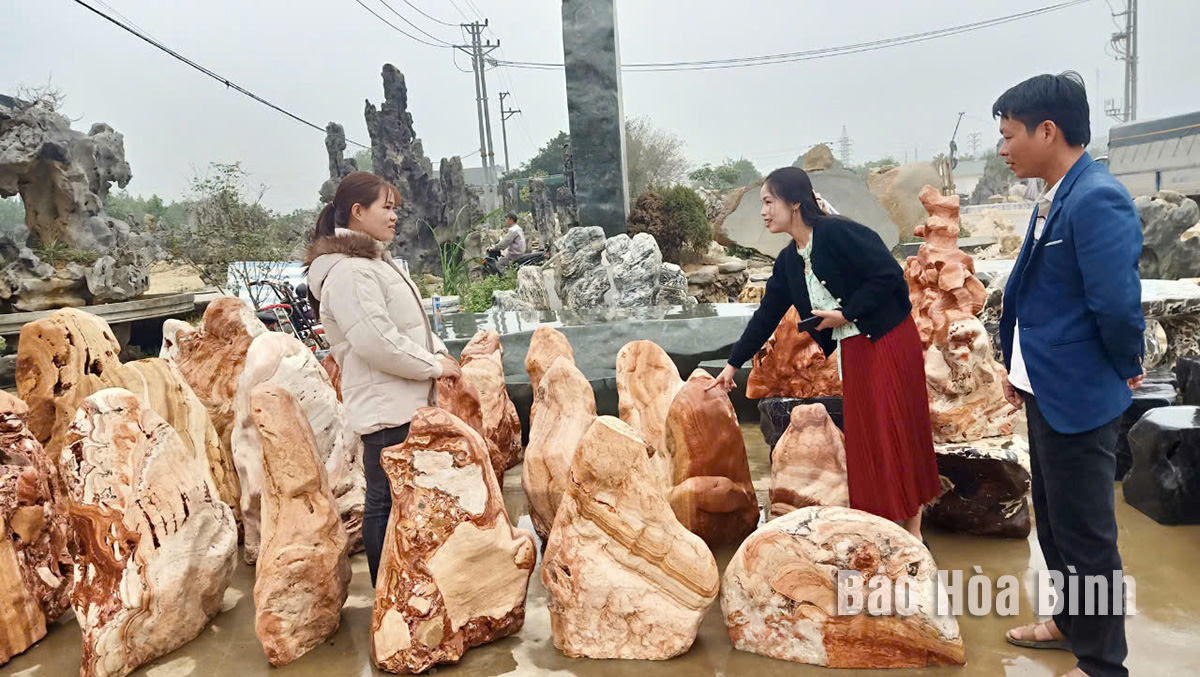



Phu Thanh commune’s Soi village has developed a thriving stone carving craft.
The district is home to six key rural industries - agricultural processing and preservation; handicraft production; processing raw materials for the agricultural industry; woodwork, bamboo and rattan weaving, ceramics, glass making, garment making, embroidery, weaving, and metalwork; the production and trade of ornamental plants; and services that support rural production and life.
Statistics showed that there are 1,985 production and business establishments involved in rural industries, including 100 businesses, 16 cooperatives, 19 cooperative groups, and 1,850 household enterprises with 2,350 workers. The average annual revenue from rural industries is 460 billion VND (18.08 million USD), while workers earn an average monthly income ranging from 4 to 5.5 million VND.
The district boasts one officially recognised craft village - the stone carving Soi village in Phu Thanh commune. The village’s products primarily include rockery, stone tables and chairs, koi ponds, and custom-made items. The village has 107 establishments, comprising three businesses, two cooperatives, two cooperative groups, and 100 household enterprises, employing a total of 360 workers. The average income ranges from 8-9 million VND per worker per month, with skilled artisans earning between 15 to 20 million VND per month. The district has organised stone carving training courses and granted certificates to 30 trainees.
However, the application of technology in rural industries remains limited. Many production units are small-scale, operating primarily from home, and lack adequate production space. Local products do not have brands, thus having low competitiveness and poor sales. Many production establishments are hesitant to invest in production, relying mostly on family funds. They also fail to pay due attention to marketing and sales promotion, and lack connections in distribution.
Hoang Thi Thu Hang, Deputy Chairwoman of the district People’s Committee stated that to develop production in a more concentrated manner, it is essential to encourage businesses to invest in equipment, production spaces, and modern technology to diversify products and meet growing market demands. The district will focus efforts on preserving and developing traditional craft villages, creating product brands, and improving infrastructure, especially upgrading the electricity supply for these villages. Along with preventing environmental pollution, the district aims to continue investing in vocational training, organise trade fairs and exhibitions to promote local products, and improve land, credit, and funding policies to support the growth of businesses and cooperatives, Hang said.